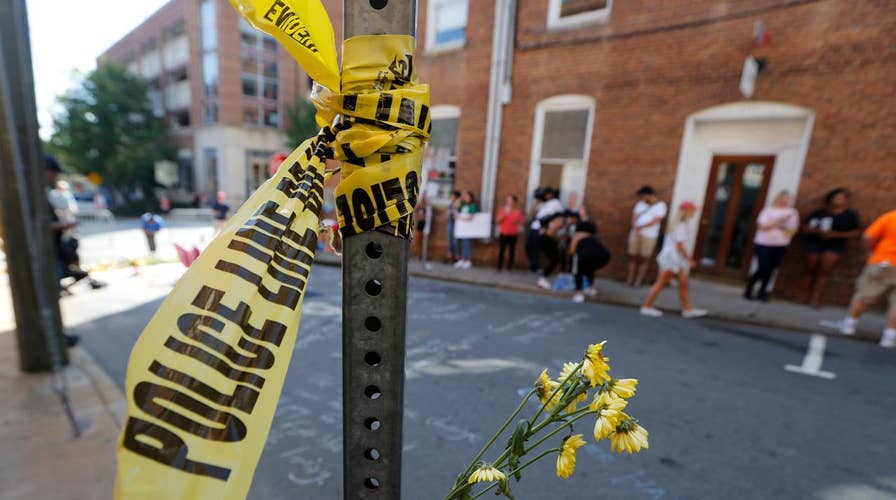DOJ opens investigation into Charlottesville car attack
Our panel debates the appropriate scope of the probe
President Trump's national security adviser said Sunday that the violence that broke out in Charlottesville, Virginia, over the weekend "meets the definition of terrorism."
H.R. McMaster told ABC's "This Week" that "anytime that you commit an attack against people to incite fear, it is terrorism."
One person died Saturday when a car rammed into a crowd of protesters in Charlottesville as tension boiled over at a white supremacist rally.
McMaster called it "a criminal act against fellow Americans. A criminal act that may have been motivated — and we'll see what's turned up in this investigation — by this hatred and bigotry, which I mentioned we have to extinguish in our nation."
Trump remained out of sight and silent as pressure mounted from both sides of the aisle for him to explicitly condemn white supremacists and hate groups involved in deadly, race-fueled clashes.
Trump has been at his New Jersey golf club on a working vacation. He is set to make a one-day return to Washington on Monday to sign an executive action on China's trade practices. But he will likely be unable to escape questions and criticism for his initial response to the Saturday's violence, for which he blamed bigotry on "many sides."
The White House tried to stem the damage on Sunday. Senior aides were dispatched to the morning news shows, yet they struggled at times to explain the president's position. A new White House statement on Sunday explicitly denounced the Ku Klux Klan and neo-Nazi groups, but it was attributed to an unnamed spokesperson and not the president himself.
Vice President Mike Pence, traveling in South America, condemned "these dangerous fringe groups" and said they "have no place in American public life and in the American debate."
Trump said nothing, save for a few retweets. One was about two Virginia state policemen killed in a helicopter crash while monitoring the Charlottesville protests, another about a Justice Department probe into the violence.
In the hours after a car plowed into a group of anti-racist counter-protesters on Saturday, Trump addressed the violence in broad strokes, saying that he condemns "in the strongest possible terms this egregious display of hatred, bigotry and violence on many sides, on many sides."
Speaking slowly from his New Jersey golf club while on a 17-day working vacation, Trump added: "It's been going on for a long time in our country. Not Donald Trump. Not Barack Obama. It's been going on for a long, long time."
White nationalists had assembled in Charlottesville to vent their frustration against the city's plans to take down a statue of Confederal Gen. Robert E. Lee. Counter-protesters massed in opposition.
The White House statement Sunday went further. "The president said very strongly in his statement yesterday that he condemns all forms of violence, bigotry and hatred and of course that includes white Supremacists, KKK, neo-Nazi and all extremist groups." It added: "He called for national unity and bringing all Americans together."
The White House did not attach a name to the statement. Usually, a statement would be signed by the press secretary or another staffer; not putting a name to one eliminates an individual's responsibility for its truthfulness and often undercuts its significance.
Republicans joined Democrats in criticizing the president for not specifically calling out white nationalists. Sen. Cory Gardner, R-Colo. said on NBC Sunday that "This isn't a time for innuendo or to allow room to be read between the lines. This is a time to lay blame."
White nationalists had assembled in Charlottesville to vent their frustration against the city's plans to take down a statue of Confederal Gen. Robert E. Lee. Counter-protesters massed in opposition.
Trump's initial comments drew praise from the neo-Nazi website Daily Stormer, which wrote: "Trump comments were good. He didn't attack us. He just said the nation should come together. Nothing specific against us. ... No condemnation at all." The website had been promoting the Charlottesville demonstration as part of its "Summer of Hate" edition.
The Associated Press contributed to this report













































